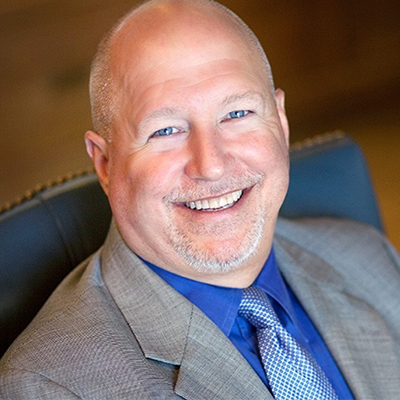If you’re a leader in a law firm, you need feedback. In this article, I’ll explain why.
For years, law firms survived without much leadership. Yes, they were managed, but they were not led. I’m happy to say that today it’s becoming the norm for well run firms to seek out leaders to help shape the firm’s direction, clarify their focus, and build buy-in and enthusiasm among the partners.
And given the acceptance of the need for leadership, it’s becoming equally clear to many firms that most lawyers need formal training in how to be effective leaders. Leadership is not something taught in most law schools.
When I talk to managing partners, management committee members, and practice group leaders, they are mostly interested in the substance of leadership—what do I do when, what do I say to whom, and what should my priorities be? These are important questions and the correct answers, if adopted, will make you a better leader.
But there is an equally important aspect to leadership that is often overlooked and that is the “process” of leadership, the “how” rather than the “what.”
There is ample evidence accumulated by behavioral scientists in several disciplines that how a leader behaves, what attitudes a leader possesses and even whether a leader is optimistic or pessimistic will have a great impact on how successful that individual is as a leader. And of all the behaviors that have such an impact, seeking out and being open to feedback is one of the most important.
When you think about it, this is just common sense. The more you understand about yourself and about how others perceive your actions, the better equipped you are to accurately respond to the concerns of others, to understand those you lead, and to gain buy-in from them on their own terms.
Why is this kind of feedback so essential?
Perhaps the most important reason is the fact that feedback increases self-awareness, and a high level of self-awareness is crucial for leader credibility, without which little can be accomplished.
Why is this so? Because the more self-aware you are, the easier it will be for you to act in a consistent way. Consistency is one of the key leadership behaviors that increases both trust and credibility of a leader in the eyes of his or her followers.
The field of “Emotional Intelligence” has generated hundreds of research studies in the past 15 years, and one finding that is frequently cited is the importance of “self-awareness.” Basically, leaders who understand their own personalities, motives and behavioral styles are more effective than leaders who don’t.
Another reason that feedback is so important is that good feedback helps you become more sophisticated in understanding yourself. It provides you with more distinctions and categories for understanding your own personality and this in turn equips you to better understand all the different personalities of the people whose
support you need. In other words, the more you know about yourself, the more skilled you will be at accurately reading and understanding other people. This, in turn, will give you a higher success rate in getting others on board with your programs.
Another benefit of seeking out and taking in feedback is that when you do so, you serve as a role model for others in your firm. This makes it all the more likely that others in leadership roles throughout the firm will
be more open to receiving feedback about themselves.
Finally, our own research on lawyers’ personalities shows that lawyers tend to be very thin-skinned, which means that they will not naturally seek out feedback and may in fact be quite defensive when it is offered. And yet to be an effective leader, it is important to continually improve. People simply trust others more when those others listen
to feedback and try to apply what they’ve learned to improve themselves. If you’re one of the thin-skinned ones, then voluntarily seeking out feedback can help you become less defensive and more receptive to constructive
criticism. This, in turn, will reassure your partners that you are actually taking in and considering what they’ve told you.
How can a leader in a law firm get high quality feedback? There are several time-tested mechanisms that can help. A well thought out 360-degree feedback survey can be an excellent tool. This is basically a questionnaire
that is completed anonymously by others who work with you (typically somewhere between 4 and 12 others fill it out) and rates you on certain behaviors, attitudes or qualities.
The advantage of a “360” is that you can often learn about your blind spots and how widespread a particular perception about you is. If all 12 raters think you are long-winded, but you think you’re concise and to the
point, it can be a very effective eye-opener and give you useful feedback that then allows you to make a needed course correction. (Other forms of “multi-rater feedback” include “peer review” and “upward evaluation.”)
Another fertile source of feedback is personality testing. Most of the well-known leadership development courses taught today devote a large part of their classroom time to providing feedback to the participants, including liberal doses of personality feedback. Learning about your personality on a test like the Myers-Briggs or the Caliper
Profile not only teaches you about your own preferred way of doing things, but at the same time educates you to all of the other possible ways of behaving that exist. This understanding can help you use a more tailored approach in motivating or gaining buy-in from others in your firm.
Finally, there are a whole range of less structured mechanisms by which law firm leaders can obtain feedback. These include suggestion boxes, straw votes, websites and electronic polls, outside consultant interviews, and structured feedback activities. The bottom line is that if you are a leader in a law firm today, you will benefit greatly by seeking out and listening to feedback.
About The Author
Larry Richard, J.D., Ph.D., is a former trial lawyer and a consulting psychologist specializing in helping law firms with leadership, change management, communication and talent issues. Dr. Richard was formerly a principal at Altman Weil and more recently at Hildebrandt. Earlier this year he launched his own consulting practice, LawyerBrain LLC. He can be reached at 610.688.7400 or drlarryrichard@lawyerbrain.com



















